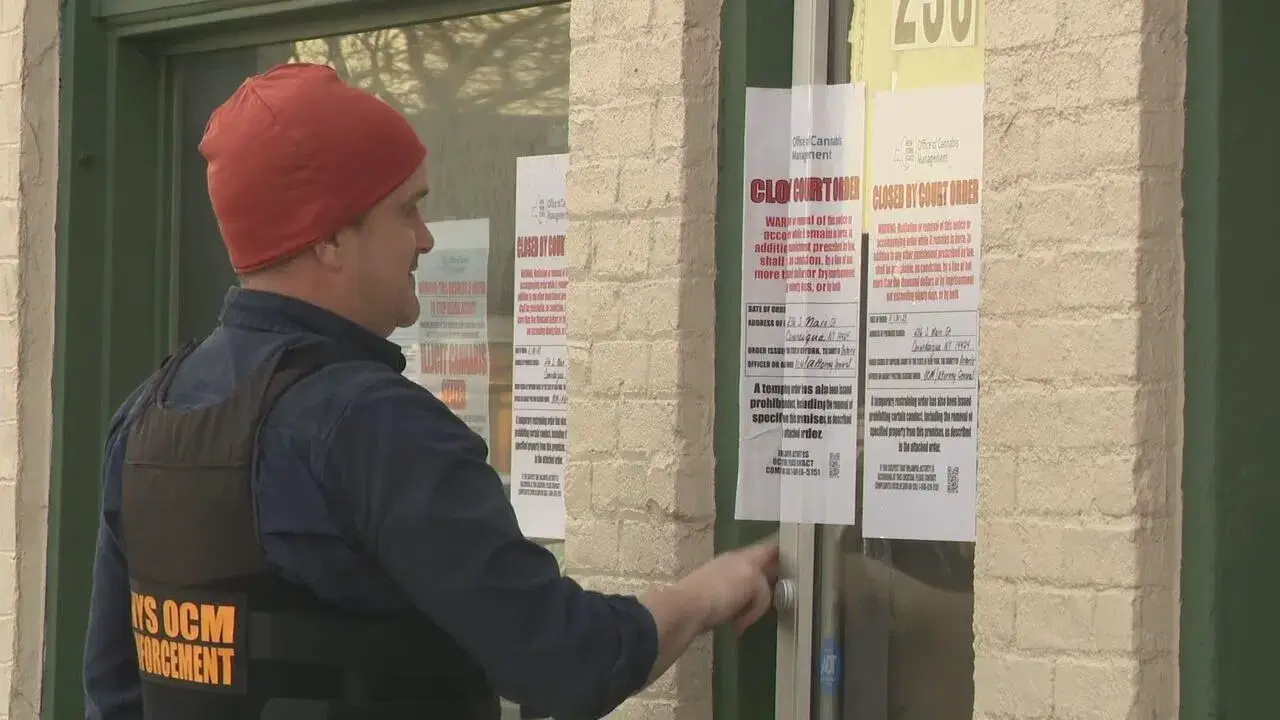In recent years, New York has become a focal point for the evolving legal landscape surrounding cannabis. The journey towards legalization hasn’t been smooth, and a prime example of this is the case of Jaydega 7.0, an unlicensed marijuana store that has been at the center of legal disputes. This article delves into the intricacies of the situation, highlighting the different perspectives and the implications for businesses within New York.
The rise and fall of Jaydega 7.0
Jaydega 7.0 emerged as a notable entity in Ontario County, offering cannabis products to locals. Despite the growing acceptance of cannabis across various states, the business model adopted by George West, the owner, defied local laws and regulations. The business reportedly generated substantial revenue, amounting to nearly $2.4 million from mid-2022 through late 2023.
However, success was not without its challenges. Jaydega 7.0 operated without the necessary licensing mandated by New York law, which quickly put it under scrutiny from regulatory bodies. This lack of compliance set the stage for significant legal repercussions.
Initial legal actions and responses
By June 2023, the Office of Cannabis Management (OCM) had taken notice of Jaydega 7.0’s operations. In response, they seized over 200 pounds of cannabis products from the store. This raid marked the beginning of a series of actions aimed at curbing the unlicensed sale of cannabis in the region. A notice and order to cease operations followed, but these warnings went unheeded by West.
Despite repeated advisories, Jaydega 7.0 continued its activities until November 2023, when more definitive action was taken. At that point, the OCM, alongside the Attorney General’s office, secured a judicial order that meant Jaydega 7.0 had to shut down completely. These measures underscored the state’s commitment to enforcing cannabis regulations.
The legal framework governing cannabis sales
New York’s approach to cannabis has been multifaceted. While the state has embraced the legalization and sale of recreational cannabis, it has implemented stringent regulations to monitor and control this new market. The primary goal of these rules is to ensure businesses operate within a legal framework that promotes safety and fairness.
Cannabis businesses are required to obtain proper licenses and adhere to guidelines established by the OCM. Failure to comply with these mandates can result in severe penalties. The enforcement actions against Jaydega 7.0 highlight how strictly these rules are applied and the consequences of non-compliance.
Penalties for non-compliance
The penalties for unauthorized cannabis sales in New York are notably harsh. Businesses caught operating without a license may face fines starting at $10,000 per day, which can escalate to $20,000 per day for more serious offenses. These financial deterrents are designed to dissuade potential illegal operations and reinforce the importance of adherence to the law.
This fine structure ensures that the cost of illegal activity far outweighs the benefits, compelling businesses to seek proper licensing. The fines imposed serve both as punishment and a vital reminder of the importance of maintaining regulatory standards in the burgeoning cannabis industry.
Impact on community and businesses
The intervention against Jaydega 7.0 sparked varied reactions within the community. On one hand, there was support for strict enforcement as many believed it would ensure safer access to cannabis and prevent illicit trade. Those in favor argued that unregulated sales pose a risk to public health and undermine the legitimate market.
Conversely, some community members expressed concerns about the impact on local commerce and accessibility. For those reliant on Jaydega 7.0 for their cannabis needs, the shutdown created a void. This tension reflects the broader debate about balancing regulation with access within the cannabis sector.
Business environment adjustments
The crackdown also sent ripples through the local business milieu. It served as a stern warning to other cannabis operations about the critical need for compliance. Entrepreneurs within the sector realized the importance of navigating the legal requirements effectively to avoid similar fates.
Additionally, the enforced closure prompted other businesses to re-evaluate their own practices and ensure they align with state mandates. This created a wave of introspection within the industry, where maintaining legality has become synonymous with sustainability and growth.
The future of legalized cannabis in New York
Looking ahead, the regulatory landscape for cannabis in New York is likely to evolve further. Authorities continue to refine the frameworks governing this nascent market, aiming to strike a balance between enabling legitimate commerce and safeguarding public interests. Continuous dialogue between industry stakeholders and regulators is pivotal in achieving this equilibrium.
The experience with Jaydega 7.0 showcases the dynamic nature of cannabis legislation and the adaptive measures required from businesses. Staying informed and engaged with ongoing changes will be vital for operators looking to thrive within the legal marketplace.
Opportunities and challenges
While challenges remain, the opportunities within New York’s legal cannabis industry are immense. Prospective entrepreneurs have a chance to tap into a lucrative market by adhering to the guidelines and maintaining transparency in their operations. Furthermore, as societal perceptions shift, there’s potential for increased consumer demand and acceptance.
Nonetheless, the road ahead isn’t without hurdles. Navigating licensing processes, ensuring product quality, and staying updated with regulations will require diligence and investment. However, the rewards could be substantial and well worth the effort for those committed to following the legal path.





